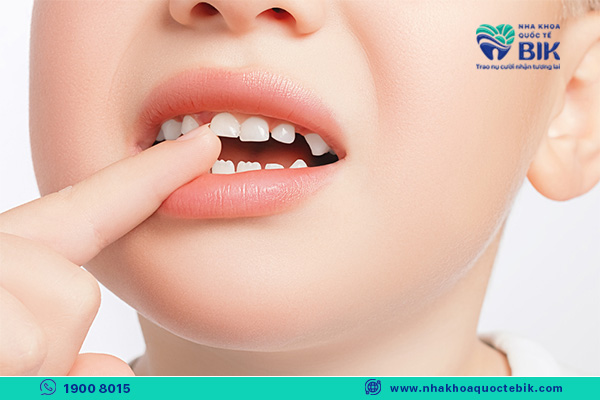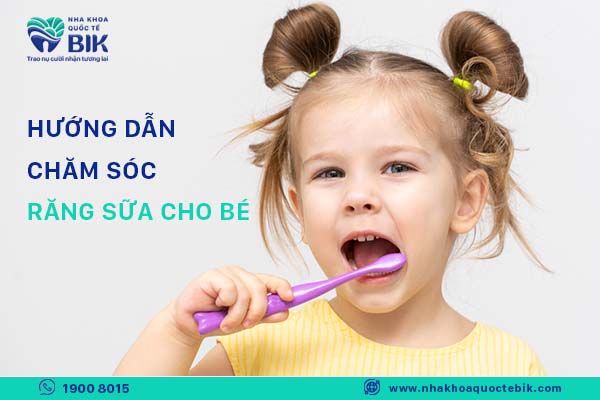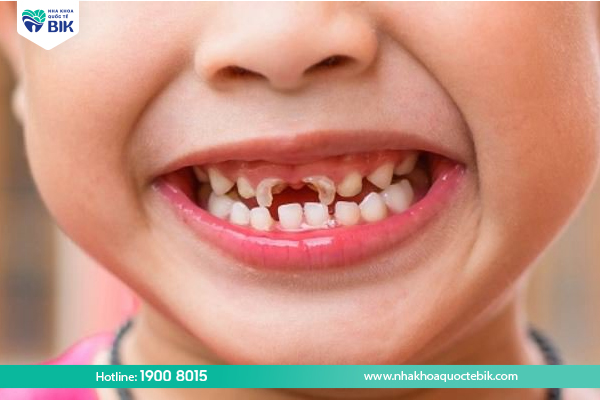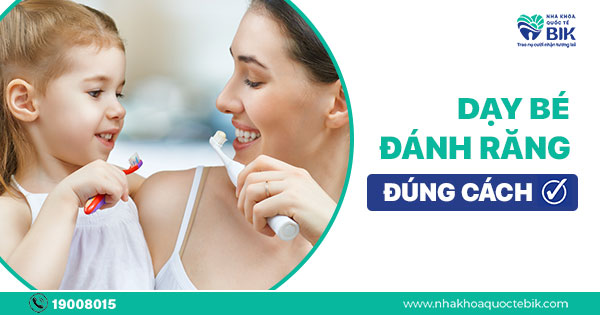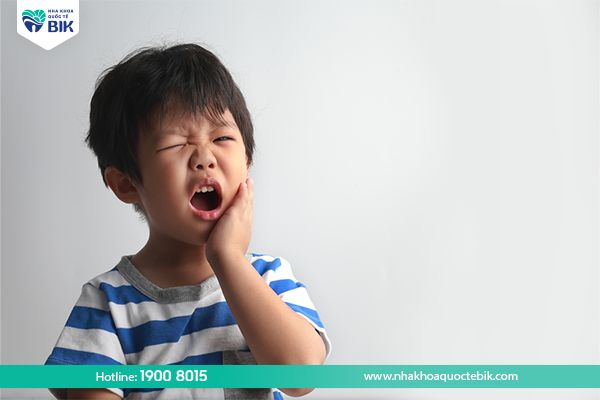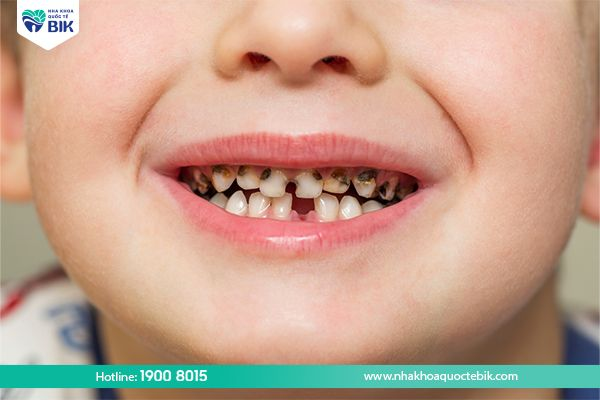Baby tooth decay is a common oral disease in young children, not only causing pain but also negatively affecting the oral health and psychology of children. So how to effectively treat baby tooth decay and bring strong teeth to children? Please refer to the article below.
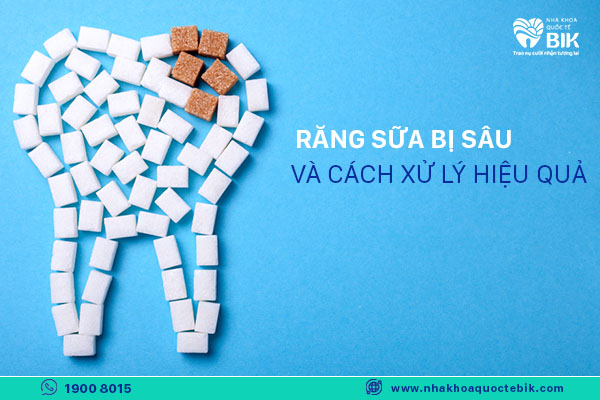
What to do if baby tooth decay occurs?
1. Causes of baby tooth decay
Baby teeth are very susceptible to decay because the enamel is still thin, easily eroded by bacteria. Cavities in baby teeth develop very quickly and can quickly penetrate the pulp if not treated promptly, affecting permanent teeth later. Currently, baby tooth decay is very common in many children, including the following causes:
Inherited from the mother during pregnancy
Sometimes the cause of baby tooth decay in young children can also appear before the child is born due to infection from the mother.
According to scientific research, the baby’s tooth buds form in the mother’s womb during the 6th-7th week of pregnancy. Next, enamel, dentin and alveolar bone will form, covering the pulp (the important nervous system of the tooth). Therefore, if during pregnancy, the mother suffers from oral diseases, it can also cause the child to have this disease after teething due to weak enamel and harmful bacteria.

Generic decay in baby teeth from aunt during pregnancy
Improper oral care
When children do not clean their teeth properly, plaque on the teeth will accumulate in one place, over time forming bacteria that cause tooth decay, destroying the structure of tooth enamel and pulp, making teeth weaker and more susceptible to decay.
Children eat a lot of sweets
Sweet cakes and candies are often the favorite environment for many types of bacteria that cause tooth decay in the oral cavity, especially foods high in sugar such as cakes, candies, soft drinks, milk tea, milk, etc. After eating, they will create plaque that sticks to the teeth and create conditions for bacteria to ferment sweet substances into harmful acids. Meanwhile, children’s awareness of oral hygiene is not good, they do not often rinse their mouths after eating.

Baby teeth decay due to eating a lot of sweets
2. Consequences of not treating cavities in baby teeth
Early tooth loss
Baby teeth with cavities will fall out early, causing adult teeth to grow crookedly and affecting the structure of the child’s teeth.
In addition, if not treated properly, tooth decay in children’s baby teeth can also damage the tooth pulp, causing pain. In some cases, the tooth pulp becomes infected, leading to necrosis and tooth abscess.
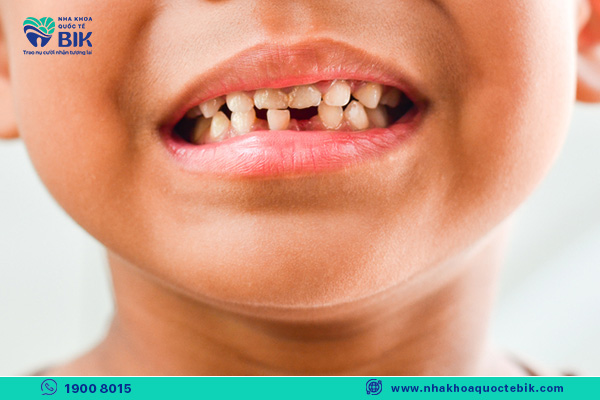
Not treating tooth decay in baby teeth causes tooth loss in children early
Mispronunciation
Baby teeth play an important role in children’s communication, helping children learn to pronounce more accurately in the process of learning to speak. If baby teeth are decayed, it will limit the child’s language development.
Affects the digestive system
While waiting for permanent teeth to grow, baby teeth help children chew and grind food. Baby tooth decay can affect their daily diet, is not good for the digestive system, and increases the risk of anorexia and malnutrition.
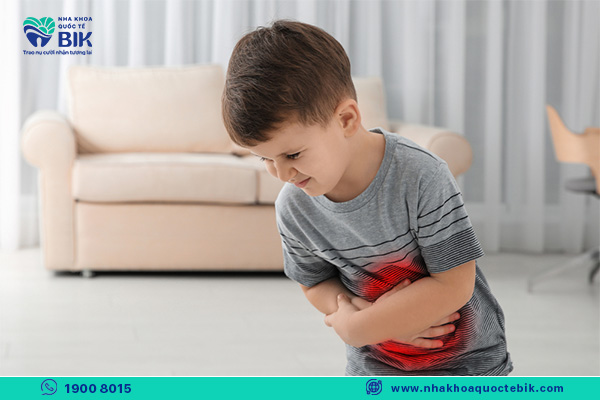
Baby tooth decay affects the digestive system
3. What to do when your baby has baby tooth decay
Baby teeth with decay quickly become loose and fall out, affecting the growth of adult teeth. It can even affect the structure of the entire jaw. Therefore, as soon as a cavity is detected, parents should take their child to the dentist for immediate examination and treatment. Depending on the severity of the cavity as well as the age of the tooth, the treatment will be different.
Condition of newly decayed baby teeth
No matter how severe the cavity is, the child still needs to be taken to the dentist as soon as possible. Based on the child’s condition, the doctor will perform a number of procedures to treat the cavity as well as prevent the infection from developing to the pulp or gums such as: removing the decayed part of the tooth, fixing the cavity by filling the tooth, preventing bacteria from continuing to erode the tooth or large cavities.
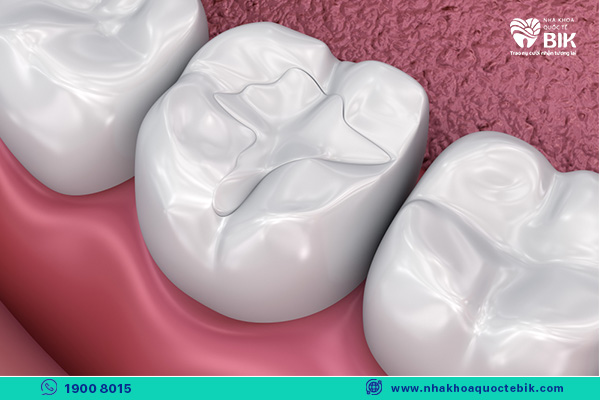
Mild cavities in baby teeth should be filled
Severe cavities in baby teeth
To treat tooth decay in this case, the child needs to be taken to a dental facility immediately for doctors to examine and advise directly. Avoid leaving it for too long as it can cause severe pulpitis, tooth abscess, leading to tooth extraction.
If the child’s tooth decay is too severe to be treated with dental measures, tooth extraction is considered extremely necessary by experts to help the child remove damaged teeth, protect the jaw structure and guide the fastest tooth development for the child.
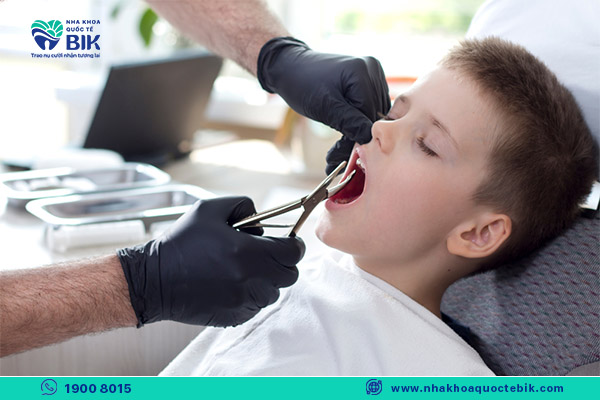
Severely decayed baby teeth should be extracted to avoid affecting the remaining teeth
4. Preventing baby tooth decay in children
Although the presence of baby teeth only lasts a few years, their role is extremely important for the development of permanent teeth as well as the overall health of young children. Therefore, parents should pay attention to their children’s oral care to avoid baby tooth decay affecting the permanent teeth later.
Pregnancy
The simplest way to treat tooth decay in young children is to prevent the disease from occurring in the first place. During pregnancy, pregnant mothers can provide the fetus with the necessary nutrients to form strong tooth enamel by eating a lot of beneficial foods such as crab, clams, shrimp, etc. This will help the child to limit the risk of being attacked by bacteria when teething later.
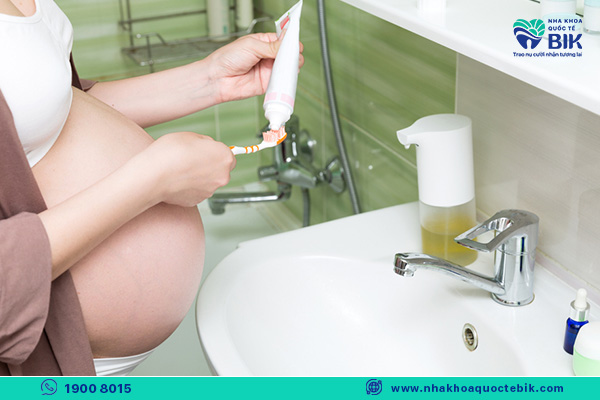
Preventing tooth decay during pregnancy
Oral care
As soon as your baby’s first teeth grow, you can help your child clean his or her mouth by using a gauze pad dipped in warm salt water. Gently clean your child’s mouth thoroughly to avoid tooth decay.
When your child is older, you can guide and train them to take care of their baby teeth properly and regularly. They should regularly gargle with warm salt water to limit bacterial attacks.
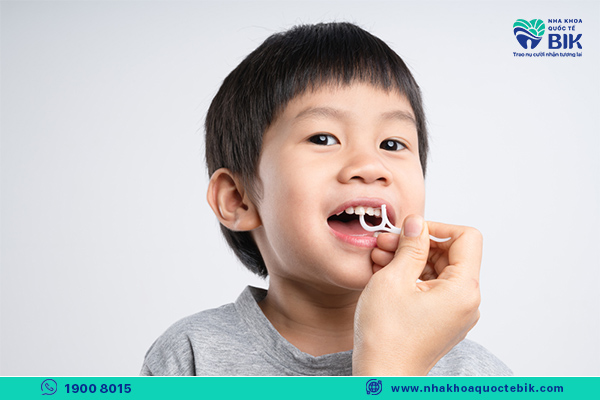
Oral care to prevent tooth decay in baby teeth
Diet
Baby tooth decay can also be prevented with a suitable diet. Consuming a variety of foods such as vegetables, fruits, nuts and seeds, etc. will help maintain and improve the health of children’s teeth.
Regular check-ups
To ensure children’s dental health, experts recommend that parents should plan to take their children to the dentist every 3-6 months so that dentists can promptly detect tooth decay and other oral diseases, thereby having treatment measures to avoid the disease from progressing further.
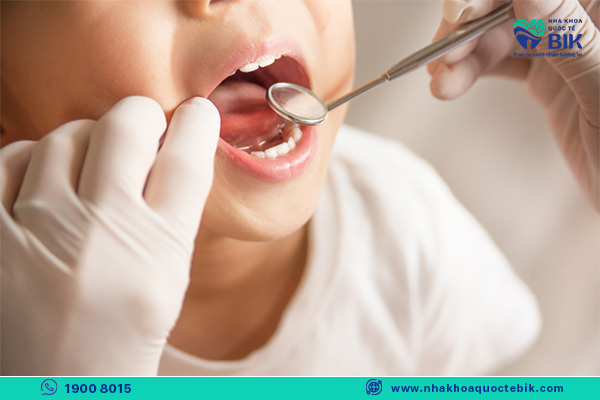
Hopefully, BIK International Dental Clinic has provided you with useful knowledge when your baby’s baby teeth have cavities and effective treatment methods. Wishing parents and children good oral health.


